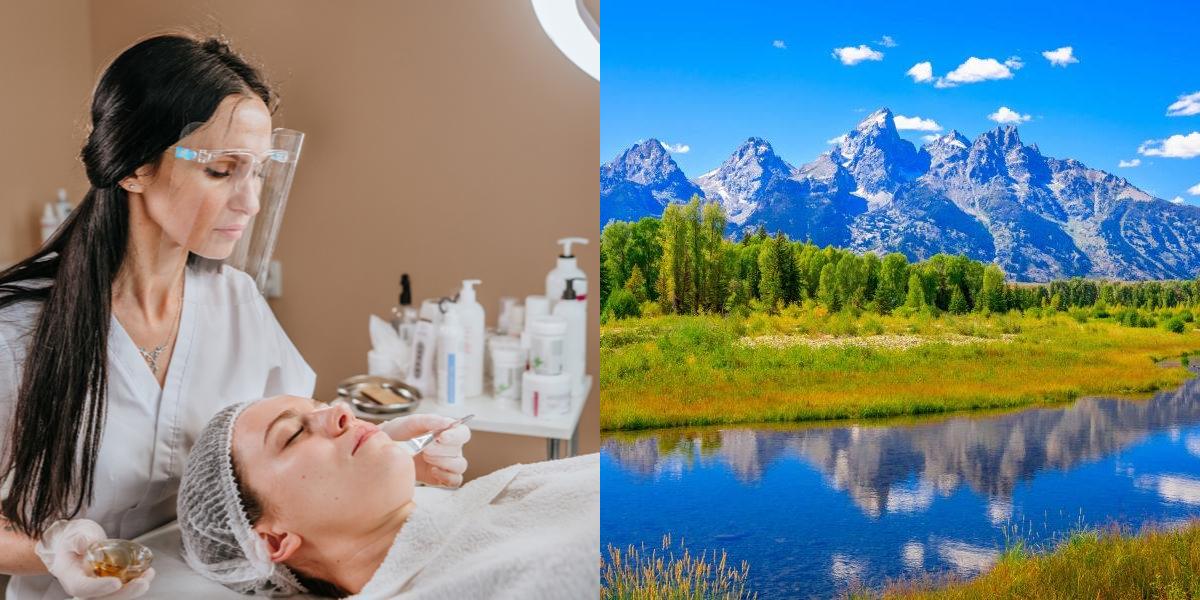How to Become an Esthetician in Wyoming

Estheticians are skincare specialists who provide various beauty treatments to their clients. They are trained professionals who work towards improving the overall health and appearance of the skin. If you are interested in pursuing a career as an esthetician in Wyoming, here are some key points to consider:
How do I get a job as an Esthetician?
After obtaining your esthetician certification, the next step is to find a job in the field. Here are some steps to help you get started:
-
Update Your Resume: Create a professional resume highlighting your education, training, and any relevant work experience. Be sure to include any specialized skills or certifications you have obtained.
-
Network: Reach out to professionals in the industry, such as estheticians, salon owners, or spa managers. Attend industry events, join professional organizations, and connect with others on social media platforms like LinkedIn. Networking can help you learn about job opportunities and gain valuable insights from experienced individuals.
-
Apply for Jobs: Start applying for esthetician positions at salons, spas, dermatology clinics, or other establishments that offer skincare services. Many employers advertise job openings on their websites, job boards, or through local cosmetology schools. Tailor your cover letter and resume to each job application to increase your chances of getting an interview.
-
Prepare for Interviews: Research the company you are applying to and prepare for potential interview questions. Be ready to showcase your knowledge, skills, and passion for the field. Dress professionally and bring a portfolio of your work, if applicable.
-
Consider Apprenticeships or Internships: If you are having difficulty finding a job right away, consider seeking out apprenticeships or internships in the field. These opportunities can provide you with hands-on experience, help build your network, and potentially lead to a full-time position.
-
Stay Positive and Persistent: Finding a job as an esthetician may take time, especially if you are a recent graduate. Stay positive and persistent in your job search, and don't get discouraged by rejection. Continue to improve your skills and knowledge while actively seeking opportunities.
Career Paths and Opportunities after Becoming an Esthetician
Becoming a licensed esthetician opens up a variety of career paths and opportunities. Here are some options to consider:
-
Salon or Spa Esthetician: Many estheticians work in salons or spas, providing a range of skincare services to clients. This can include facials, body treatments, hair removal, makeup application, and more. Working in a salon or spa allows you to interact directly with clients and build relationships while helping them achieve their skincare goals.
-
Medical Esthetician: Medical estheticians work in medical offices, dermatology clinics, or plastic surgery centers. They often provide advanced skincare treatments, such as chemical peels, microdermabrasion, laser treatments, and other non-surgical procedures. Additional training and certifications may be required to work in this field.
-
Makeup Artist: With additional training and experience, estheticians can pursue a career as a makeup artist. This can involve working in various settings, including salons, spas, bridal boutiques, fashion shows, or the film and television industry. Makeup artists use their skills to enhance clients' natural beauty and create stunning looks for special events or photo shoots.
-
Product Sales Representative: Estheticians with a strong knowledge of skincare products and ingredients can work as sales representatives for skincare brands. This involves promoting and selling products to salons, spas, or directly to consumers. Sales representatives often provide product education and demonstrations to clients and may attend trade shows or industry events.
-
Educator or Trainer: Some estheticians choose to share their knowledge and expertise by becoming educators or trainers. This can involve teaching at esthetician schools or providing training workshops for professionals in the industry. Educators and trainers help aspiring estheticians develop the skills and knowledge needed for a successful career.
-
Entrepreneurship: Becoming an esthetician can also provide the opportunity to start your own business. This can include opening your own salon or spa, offering mobile esthetician services, or creating your own line of skincare products. Starting your own business requires careful planning, research, and a strong entrepreneurial spirit.
It's important to note that the specific career paths and opportunities available to you may depend on your location, experience, and additional training or certifications you have obtained. Continuing education and staying up-to-date with the latest trends and techniques can also open doors to new opportunities.
Final Thoughts
Becoming a licensed esthetician is an exciting journey that offers a wide range of career opportunities. By completing the necessary educational and licensing requirements, networking with industry professionals, and actively seeking job opportunities, you can start your career as an esthetician.
Whether you choose to work in a salon, spa, medical setting, or pursue a specialized path such as makeup artistry or product sales, the field of esthetics offers endless possibilities for growth and creativity. Stay committed to continuing education, always strive to improve your skills, and embrace the ever-evolving nature of the beauty industry.
Remember, becoming a successful esthetician requires dedication, hard work, and a genuine passion for helping clients look and feel their best. So, take the first step towards your esthetician certification and begin your journey towards a rewarding and fulfilling career in esthetics.
If you're considering a career shift or curious about different professional paths, Dreambound has written many guides to help you in making informed decisions. Here are a few:

Pia Yapjoco is part of the school growth and sales team at Dreambound. She helps facilitate school partnerships that expand educational opportunities for aspiring students in allied health and other trades. Beyond work, she curates her pup's Instagram, hunts for hidden coffee gems, and escapes into cozy gaming.





